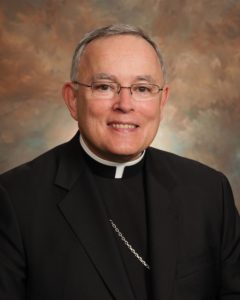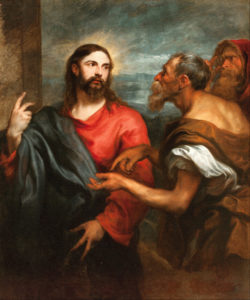 What we should, or should not, render unto Caesar shapes much of our daily discourse as citizens…
What we should, or should not, render unto Caesar shapes much of our daily discourse as citizens…
The key word in Christ’s answer is “image,” or in the Greek, eikon… in the New Testament, the “image” of something shares in the nature of the thing itself…. Once we understand this, the impact of Christ’s response to his enemies becomes clear. Jesus isn’t being clever. He’s not offering a political commentary. He’s making a claim on every human being. he’s saying, “render unto Caesar those things that bear Caesar’s image, but more importantly, render unto God that which bears God’s image” — in other words, you and me. All of us.
And that raises some unsettling questions: What do you and I, and all of us really render to God in our personal lives? If we claim to be disciples then what does that actually mean in the way we speak and the way we act?
 Thinking about the relationship of Caesar and God, religious faith and secular authority, is important. It helps us sort through our different duties as Christians and citizens. But on a deeper level, Caesar is a creature — a creature of this world — and Christ’s message is uncompromising; We should give Caesar nothing of ourselves. Obviously we’re in the world. That means we have obligations of charity and justice to the people with whom we share it. For Christians, patriotism is a virtue. Love of country is an honorable thing. As Chesterton once said, if we build a wall between ourselves and the world, it makes little difference whether we describe ourselves as locked in or locked out…
Thinking about the relationship of Caesar and God, religious faith and secular authority, is important. It helps us sort through our different duties as Christians and citizens. But on a deeper level, Caesar is a creature — a creature of this world — and Christ’s message is uncompromising; We should give Caesar nothing of ourselves. Obviously we’re in the world. That means we have obligations of charity and justice to the people with whom we share it. For Christians, patriotism is a virtue. Love of country is an honorable thing. As Chesterton once said, if we build a wall between ourselves and the world, it makes little difference whether we describe ourselves as locked in or locked out…
Real freedom isn’t something Caesar can give or take away. He can interfere with it; but when he does, he steals from his own legitimacy…The purpose of religious liberty is to create the context for true freedom. Religious liberty is a foundational right. It’s necessary for the good of society. But it can never be sufficient for human happiness. It’s not an end in itself. In the end, we defend religious liberty in order to live the deeper freedom that is discipleship in Jesus Christ. What good is religious freedom, consecrated in the law, if we don’t then use that freedom to seek God with our whole mind, our whole strength, our whole soul and all that we are.
The Most Reverend Charles J. Chaput, O.F.M. Cap. is the ninth and current Archbishop of Philadelphia. Reprinted with permission